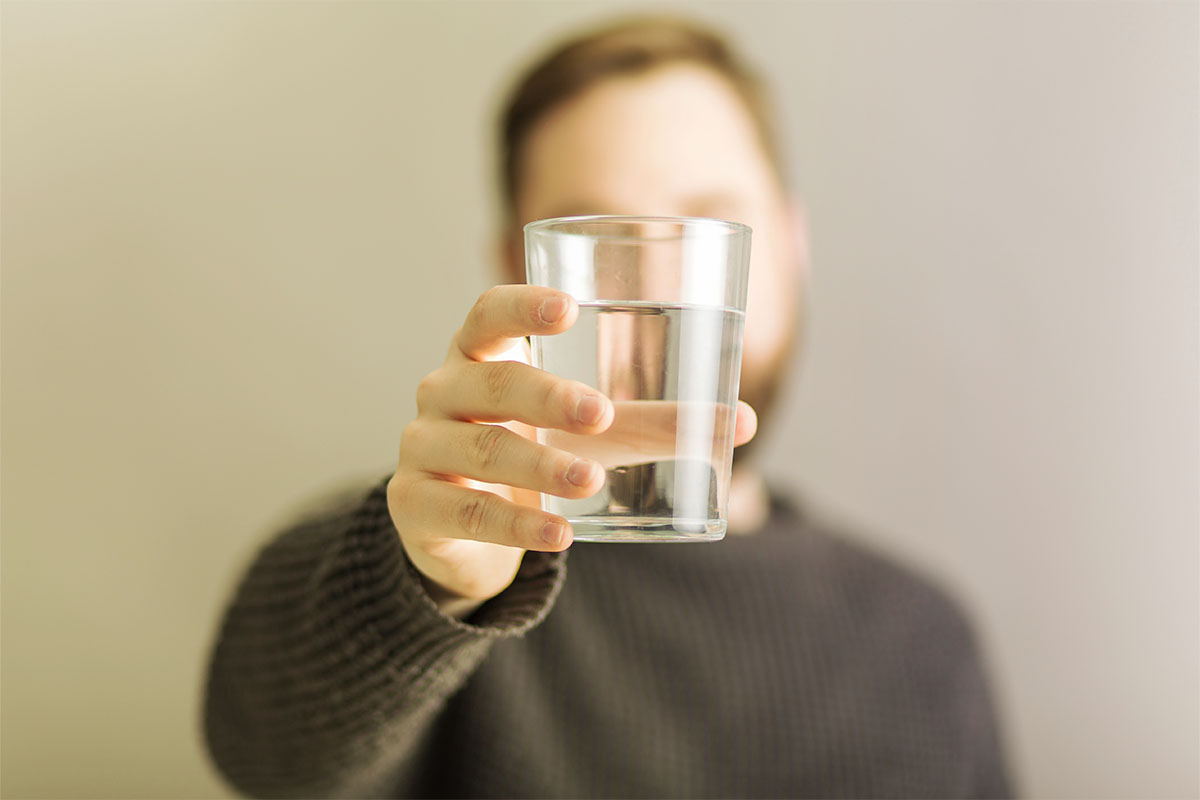Let’s Have A Safety Talk On Hydration — The Underrated Hazard

It is important for workers to stay hydrated while working in order to avoid health problems. This is particularly true for those in construction, industrial workers, and anyone else who has to work with very high temperatures or in the sunshine all day.
Dehydration can cause headaches, fatigue, and dizziness. In extreme cases, it can lead to heat stroke. OSHA has regulations in place that require employers to provide water and other fluids to their employees.
- In a survey of 1,000 American workers, only 23 percent drank enough water while at work daily.
- A 3% percent drop in hydration levels contributes to longer reaction times. For individuals who operate heavy machinery for a living or who work in hazardous environments, such as construction sites, this can cause a danger to themselves and their colleagues.

Why is hydration safety important?
Construction workers are often exposed to the sun and other elements that can cause dehydration. In addition, they may be working in hot environments where they are at risk of heat stroke. It is important for them to drink plenty of fluids to stay hydrated and healthy.
Those in industry and manufacturing may have to deal with excessive temperatures in warehouses and factories, which can cause dehydration through sweating.
Hydration is essential for a range of different functions. These include:
- regulating body temperature
- keeping joints lubricated
- preventing infections
- delivering nutrients to cells
- keeping organs functioning properly
In addition, it helps with quality of sleep and brain function.
OSHA regulations for hydration
OSHA requires employers to provide water and other fluids to their employees. The type of fluid and the frequency with which it must be provided depends on the work environment and the risk of dehydration.
- For short jobs of less than two hours, cool potable water is adequate.
- For longer jobs, OSHA obligates companies to provide electrolyte-containing beverages, such as sports drinks, as workers lose salt and other electrolytes when they sweat.
OSHA recommends workers drink one cup (8 ounces) of water every 20 minutes while working in the heat and that they should not wait until they are thirsty to drink. Employers should remind them on a regular basis.

Dehydration hazards
A lack of hydration can lead to a number of health and safety hazards in the workplace. Dehydration can cause fatigue, headaches, and dizziness. In extreme cases, dehydration can lead to heat stroke. It is important for safety managers to educate workers on the importance of hydration and how to stay safe while working in hot environments.
- Poor physical performance, particularly in a manual labor environment
- Loss of focus, leading to hazardous situations when dealing with machinery
- Drop in blood pressure, leading to dizziness
- Kidney problems from infrequent urination
- Seizures from low levels of electrolytes
- Headaches
Hydration safety toolbox talk
What is dehydration?
Dehydration occurs when your body loses more fluids than it takes in. Studies have shown that even a slight drop in bodily fluid levels (as little as 2%) can cause mental problems and short-term memory loss.
What causes dehydration?
The normal body temperature for healthy people is 98.6F. If it rises above this, you might notice:
- Increased sweating
- Higher respiratory rate
- Feeling more thirsty
- Having a dry mouth
Reasons for this could relate to the weather, the physical exertion you are doing, an illness, or another factor.
These are signs that your body is trying harder to keep your temperature down and prevent it from rising. You are most likely experiencing a fluid shortage, and that must be replenished.
How to look after each other at work
1. Make sure your colleagues are staying hydrated while they’re working. Dehydration can lead to all sorts of health problems, and it can be especially dangerous in hot weather.
2. Recommend to your colleagues that they can also eat snacks that contain a lot of water, like fruits and vegetables, to stay hydrated.
3. If you notice someone starting to show signs of dehydration, make sure to get them some water right away. The employer may also need to send them home if they’re not feeling well.
Preventing dehydration
Hydration should be a top priority at work. It is important to know about common hydration practices and symptoms. Sometimes, symptoms of dehydration can be detected before they become severe. Here are some indicators of dehydration:
1. Dark urine
2. Less frequent urination
3. Daytime fatigue without any other obvious cause
Healthy hydration habits include drinking between 50-64 oz per day with regular breaks or intervals. This goal may need to be raised during warmer months when more activity is required for work.
Try to avoid too much caffeine, as this can divert water away from where you need it. Also, sugar increases your water requirement. Even when consumed in an energy drink, you need to supplement it with water.
Questions to employees on hydration
- How can you tell if someone is dehydrated?
- How often should you drink at work?
- What are the dangers of dehydration?
Promote hydration at work with this email template
Dear Colleague,
As we all know, it’s important to stay hydrated while working. Dehydration can lead to a number of health problems, including fatigue, dizziness, and even heat stroke. I’m sure we can all agree that we want to be healthy and safe while on the job.
That’s why I wanted to remind everyone about our workplace hydration policy. We have water and other fluids available for you to drink, and you should do so at regular intervals. Don’t wait until you feel thirsty!
I encourage everyone to drink plenty of fluids during the day, especially if it’s hot outside.
Thank you.
Video about hydration at work
Hydration safety meme
Conclusion
Dehydration can cause a number of different illnesses and also create a situation in which you can lose physical ability, focus, and concentration. When working in construction, industry, manufacturing, and similar sectors, this could prove fatal for you or your colleagues.
Always drink plenty of fluids while working, especially in hot weather or when undertaking hard physical labor. Dehydration can lead to serious health problems, including heat stroke. Drink water, sports drinks, or fruit juices to stay hydrated.


